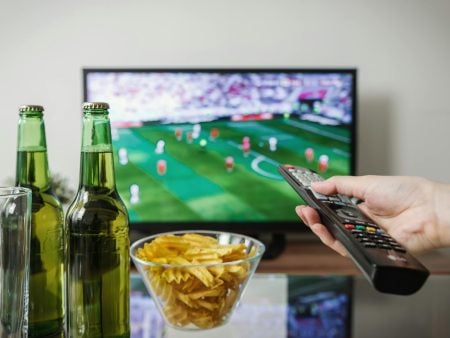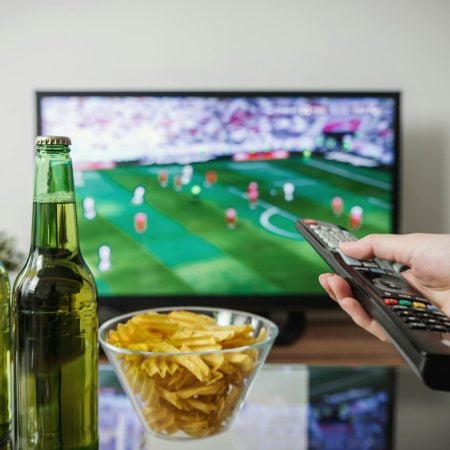Sports bettors often trust their instincts. They lean on memory, emotion, and experience when placing wagers. The problem is that instincts can easily mislead — especially when confirmation bias gets involved. Even players who stick to trusted Florida sportsbook sites aren’t immune. They read stats, watch line movements, follow expert picks — yet still manage to cherry-pick only the data that supports their gut feeling.
This is what makes confirmation bias so tricky: it’s not about being misinformed. It’s about being overly certain about what we think we know. Bettors, whether they have been wagering for years or have just started looking at online betting, will fall victim to this bias. Knowing how bias is developed, how it affects perception of risk, and how it alters decision-making is vital to outcomes.
In this piece, you’ll learn how confirmation bias works in sports betting, where it comes from, and why it’s so persistent. You’ll see how it affects bankroll management, line evaluation, and even emotional regulation after losses. We’ll dig into practical steps to counter it — from data discipline to habit-building — plus lessons from real-world examples of both success and failure. By the end, you’ll have a clearer picture of how to protect your judgment and make sharper, less biased decisions when placing bets.
Psychology of Biased Betting
Confirmation bias isn’t something you see only in sports betting. It is an important part of how people take in and process information. It started in the 1960s with cognitive psychologists studying how people defend their opinions with evidence and throw away anything that goes against their beliefs. With betting, people bias statistics to fit their expectations before the game.
The betting landscape in the U.S. has gone through three main phases. It started with local bookmakers, then moved to offshore sites, and now we have legalized online betting. Each phase offered new layers of data and access. More data means that a bettor can lose focus on what really matters. More data resulting in worse decisions is a perfect example of confirmation bias.
In behavioral economics, this bias is associated with ‘motivated reasoning’ and ‘selective exposure’. Confirmation bias is more than the flawed interpretation of data. It is the active recruitment of confirming information to support pre-existing beliefs. Bettors follow certain tipsters, trust certain odds providers, and continue betting on one sportsbook interface because it feels ‘right’ to them.
Confirmation bias is emotionally rewarded as well. Someone betting on their favorite team is simultaneously defending their identity; thus, the distortion of performance and injury rationalization is in their self-interest. Once a belief is in place, only overwhelming counter-evidence and self-awareness will get it dislodged.
Impact of Confirmation Bias
The Cognitive Mechanics Behind Biased Betting
In simple terms, confirmation bias predominantly impacts how biased someone’s perception is. Unconscious Bettors overvalue supportive evidence to the exclusion of rational dissension. This often takes the form of ignoring the strength of opponents when overestimating a team’s recent victories.
For instance, a fan of a certain college football team assumes that the team always “bounces back after losses.” Such a fan is likely to find a single supportive stat interesting and neglect several other, more relevant, trend stats that show poor road performance after emotionally charged losses.
Emotional Reinforcement and Overconfidence
Each win builds on the false sense of control. Winning and using biased reasoning strengthen the bettor’s confidence even further. This self-reinforcing loop can rapidly evolve into overconfidence, which is one of the most dangerous traits in the betting psyche.
The most remarkable thing about losses is that they rarely break the loop. Instead, bettors reinterpret losses. Bad luck, bad officiating, or “one bad quarter” are the most common excuses. This reframing protects the bettor from cognitive dissonance – the feeling of having faulty reasoning.
Data Abundance and Selective Interpretation
These days, it’s really simple to support any story with statistics. While researching odds on reputable Florida sportsbooks, bettors come across player statistics, injury updates, weather updates, and even predictive algorithms. They glue to the information, chasing criteria. They don’t analyze the whole data set and seek confirmation on what they expect to happen.
Having too much data does not lead to smarter decisions and can even strengthen the gambler’s bias. Algorithms and recommendation engines increase this bias, showing bettors information that supports their previous choices.
How Bias Impacts Bankroll and Risk Perception
Confirmation bias, which for gamblers means believing in your unethical bets, makes you think even more about how much to risk. Bettors become overly confident with “solid” picks. With no justification, they stake more, which unbalances confidence and evidence. This skews evidence and makes overshooting impossible.
Big swings of winnings and losses over time make ‘rational untracked following’ impossible. Losses, once confidence and discipline are unbalanced, are the easiest to chase. This also makes going up and down emotionally more committed to poorly analyzed results. This also makes one go up and down emotionally more committed to poorly analyzed results.
The Role of Peer Influence and Online Communities
Bettors often discuss picks on forums, Discord channels, or social media. These spaces can create echo chambers, where opinions reinforce each other instead of being challenged. When everyone in a group is leaning toward one side of a game, dissenting views get drowned out.
Florida sports betting conversations online show this clearly — discussions can shift from statistical debate to group validation. It’s social proof at work: if enough people agree with your bias, it starts to feel like objective truth.
Breaking the Loop: Awareness and Countermeasures
The first step to overcoming confirmation bias is to know when it is occurring. Bettors need to self-reflect and test their beliefs against opposing evidence. Rather than asking, “Why is this pick good?”, they should ask, “What evidence would prove this wrong?”
More skilled bettors might practice “blind analysis,” whereby they assess stats without knowing the names of the teams involved in order to remove any emotional bias. Others use automated tracking to make it harder to justify irrational decisions.
Using Bias Awareness for Strategic Gain
Being aware of confirmation bias might be useful. Knowing how most people think lets consistent bettors recognize lines that are overestimated. Pros can make money when people emotionally bet on one side of a biased imbalance.
Tracking line movements, consensus data, and tools on market psychology help see where confirmation bias makes odds go up. By betting against the bias, disciplined bettors can find long-term value that others miss.
Common Challenges and Practical Solutions
The most difficult part isn’t finding bias, it’s maintaining objectivity. Emotional exhaustion, recency bias, and personal pride disproportionate attention can all interfere with sound decision-making. Keeping a log of bets, the reasoning, and the outcomes, in a balanced way, is crucial. It is only then, after some time, will the bias will show and fallback patterns can be identified.
Some other helpful strategies are using third-party data collectors, pre-defined bankroll limits, and cooldown periods after losing. Everything requires a degree of accountability, and with peers or tools, it is this that keeps judgment grounded.
Practical Guide
Track Every Decision
You should be recording your bets along with the reasons you’re placing them. This will be helpful when reviewing whether your reasoning was emotional or justified.
Create a Contradiction Habit
Before you make a wager, make sure you are finding at least one strong argument against your pick. This will help you stay rational.
Diversify Data Sources
Use a variety of odds providers, news sources, and analytics models. Don’t depend on a single source. Even the most trustworthy source can be misleading, so be careful of biased interpretation.
Automate Evaluation
You can use spreadsheet trackers, bet analyzers, or bankroll management apps. They will provide a rational overview of your performance.
Emphasize Discipline Over Emotion
You should treat betting as a process instead of a prediction. Stick to preset limits and bet sizes. You are most prone to bias when you are betting emotionally. If you can avoid emotional betting, you will be much more rational.
Best Practices Checklist
- Check the history of results every week.
- Don’t gamble on the teams you support emotionally.
- Use stats and situation data.
- Analysis time has to be separate from the time you place the wager.
- Record every justification before finishing the bet.
Frequently Asked Questions
Q: What is confirmation bias in sports betting?
A: It is the tendency to support and seek out data that confirms or supports your beliefs and opinions. This is often seen in bettors who reinforce bad practices with selective data and do not realize it.
Q: Can confirmation bias affect professional bettors too?
A: Yes. Even the most data-driven bettors who rely on evaluations and analyses are prone to interpretive bias if they become emotionally attached to outcomes they wish to bet on or to teams.
Q: How can I identify when I’m being biased?
A: Searching for evidence that confirms your beliefs without investigating the alternatives is the best way to identify bias.
Q: Are algorithms and betting models immune to bias?
A: No. Algorithms are designed to reflect the bias of the designer. This bias may come from the assumptions and the inputs they designed the model.
Q: How Discipline and Control Shape Success in Florida Sportsbooks?
A: Discipline keeps emotions in check. Whether betting through a Florida sportsbook online or another platform, controlled bankroll management, structured reviews, and sticking to strategy prevent overreaction to short-term results.
Q: What stops bias from happening?
A: Bet-tracking apps work along with blind analysis techniques, and mixed sources of news all reduce emotional influence.
Q: Does following tipsters worsen bias?
A: It can. You’re biasing yourself if you only follow people that support your thoughts and don’t try to go against them.
Q: Why do losses create bias?
A: Losing triggers emotional defense. Bettors tend to ‘bad luck’ losses and avoid admitting flawed logic, to protect the flawed logic.
Q: Can bias be entirely gotten rid of?
A: No. But understanding and having a structured review will greatly reduce it over time.
Q: What’s the fastest way to check if I’m objective?
A: Have someone else question your reasoning before you place a wager. An external view will uncover blind spots.
Case Studies
Success Example: The Disciplined Contrarian
A bettor in his 30s started logging each bet he placed along with the odds, his reasoning, and how he felt at the time. Later on, he figured out that most of his losses came from games that he bet on with teams he recognized. He made a rule for himself — no emotional bets. He used mismatched stats and the public betting against the games, which helped him increase his betting ratio by 12% in a season. This showed that emotional self-discipline helps improve impartiality.
Failure Example: The Narrative Chaser
Another bettor got overconfident after starting his day with five straight wins with bets on underdogs. Even though he didn’t win again, he thought he was ‘figuring out the system’ since he started not considering the metrics that didn’t fit his plans. After ten straight losses, he lost all his money. When looking back through his bets, he remembered that he left out 70% of the metrics that proved his theories were wrong. The lesson here is that excessive confidence built on poor logic will lead to losses faster than anyone would expect.
Future Considerations
Some new analytics tools are measuring some of the psychological aspects of betting behavior. You might see more AI-driven tools that evaluate user behavior and provide feedback on their biased betting patterns. Machine learning technology already identifies selective data exposure and provides corrective insights.
Potential regulations might include educating the public on the biases described above. With more responsible gambling initiatives available, the expected risk within the decision-making process will become more articulated. New gambling literacy will encompass more than just the odds and the math; it will include psychological aspects as well.
As more players enter the online betting market, prediction accuracy will become less important than the ability to design a reliable, bias-resistant betting process. Gamblers possessing both technical and psychological skills will gain the upper hand.
Staying Sharp When the Odds Blur
Awareness of confirmation bias doesn’t make it vanish — it just gives you a fighting chance. The real improvement comes from repetition: track results, question assumptions, and separate emotion from evidence. Whether you’re exploring new markets or refining long-term strategies, keep testing what you “know.”
For anyone using trusted Florida sportsbooks sites, the edge won’t come from secret data or insider picks. It’ll come from the ability to think clearly when others can’t. Bias thrives on comfort. Challenge it, and you’ll not only make smarter bets — you’ll make fewer reckless ones. Stay curious, stay skeptical, and always let data, not emotion, decide your next move.










